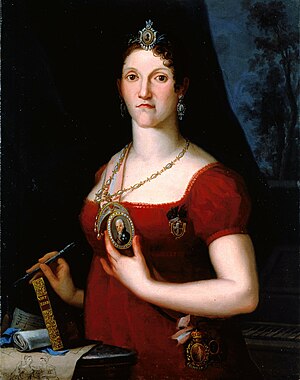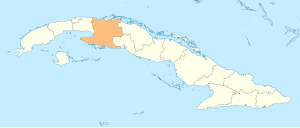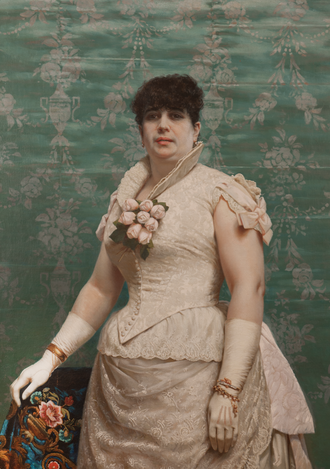Discover Your Roots
SIGN UPDiscover Your Roots
SIGN UPCarlota is a lovely female name of Spanish origin, meaning "Feminine Form of Charles." It is the Spanish and Portuguese equivalent of the name Charlotte in English. The name has historical significance and can be found in various contexts, including people, places, and other references. In addition to being a popular given name, Carlota is associated with locations such as Carlota Cove in Antarctica and Carlota Island in the Philippines. It also has connections to literature, with a children's historical novel titled "Carlota" by Scott O'Dell. Moreover, the name is linked to Operation Carlota, a Cuban military intervention in Angola during the 1970s. Carlota's diverse associations and its elegant meaning make it a name rich in cultural and historical significance.

Doña Carlota Joaquina Teresa Cayetana of Spain (25 April 1775 – 7 January 1830) was Queen of Portugal and Brazil as the wife of King Dom John VI. Born in the Royal Palace of Aranjuez, she was the daughter of King Don Charles IV of Spain and Maria Luisa of Parma. Despite her mischievous and playful nature, Carlota Joaquina received a rigid and deeply Catholic education, with a focus on religion, geography, painting, and riding. Her marriage to Infante John, Duke of Beja, was arranged as part of diplomatic relations between Spain and Portugal. However, she was detested by the Portuguese court and gradually won the antipathy of the people, who accused her of promiscuity and influencing her husband in favor of the interests of the Spanish crown. After the escape of the Portuguese court to Brazil, she began conspiring against her husband and even planned to usurp the Spanish crown in the hands of Napoleon's brother, Joseph Bonaparte. Her relationship with her son Miguel deteriorated, and she ended up being confined in the Royal Palace of Queluz, where she died alone and abandoned by her children and political allies. Despite her controversial life, Carlota Joaquina left a lasting mark on the history of Portugal and Brazil.

Carlota Lucumí, also known as La Negra Carlota, was an African-born enslaved Cuban woman of Yoruba origin who played a significant role in leading the slave rebellion at the Triunvirato plantation in Matanzas, Cuba during the Year of the Lash in 1843–1844. Her leadership alongside Ferminia Lucumí in the uprising at the sugar mill "Triunvirato" marked a pivotal moment in Cuban history, symbolizing resistance against oppression and contributing to the discourse on gender roles in slave revolts. Despite the scarcity of documented information about her life, Carlota's legacy has been instrumental in shaping historical narratives and has been commemorated through various initiatives, including the UNESCO Slave Route Project. The Triunvirato rebellion, part of the larger La Escalera series of uprisings, holds significance in Cuban history for its impact on the dynamics of power and resistance during a period of intense social and political turmoil. Carlota's courageous leadership and her enduring influence on Cuban memory exemplify her enduring legacy as a symbol of strength, resistance, and the fight for freedom.

Carlota Ciganda Machiñena, born on June 1, 1990, is a renowned Spanish professional golfer who competes in the Ladies European Tour and the LPGA Tour. She gained recognition in her debut season in 2012 by clinching the Ladies European Tour's Order of Merit, Player of the Year, and Rookie of the Year titles. Hailing from Pamplona, Spain, Ciganda's early introduction to golf at the age of five, under the influence of her father, set the stage for her illustrious career. She pursued a Business Administration major at Arizona State University in the United States from 2008 to 2011, showcasing her academic prowess alongside her golfing talent. Ciganda's multilingual abilities, including proficiency in four languages, further demonstrate her versatility. Her amateur career was marked by numerous victories, including the British Ladies Amateur in 2007 and the European Ladies Amateur Championship in 2004 and 2008. Transitioning to the professional circuit in May 2011, Ciganda's remarkable journey has been highlighted by victories in various prestigious tournaments, solidifying her status as a prominent figure in international golf. With an impressive track record and an array of accolades to her name, Ciganda continues to inspire and leave an indelible mark on the world of golf.

Carlota Ferreira, also known as Petrona Mercedes Ferreyro García, was an enigmatic figure in Uruguayan history, known for her tumultuous life and romantic entanglements. Her legacy was immortalized by Juan Manuel Blanes's iconic 1883 portrait of her, which has since become a symbol of Uruguayan art. Despite the lack of comprehensive information about her early life, recent research has shed light on some aspects of her background. Records indicate that she was the daughter of Mercedes Ferreyro García and was baptized as Petrona Mercedes Ferreyro García in 1840. Following the death of her first husband, Dr. Emeterio Celedonio Regunaga, who was a prominent figure in Uruguayan politics, she remarried in 1881 to Ezequiel de Viana Oribe, only to be widowed once again. Her intriguing life and association with influential figures of her time have captured the imagination of many, making her a subject of fascination in Uruguayan history.

Carlota Gooden, born on June 7, 1936, is a prominent Panamanian sprinter renowned for her groundbreaking achievements in the world of athletics. Notably, she holds the distinction of being the first woman to represent Panama at the Olympics, a testament to her trailblazing spirit and athletic prowess. Gooden's remarkable career saw her participate in the women's 100 meters event at the 1960 Summer Olympics, solidifying her status as a revered figure in the realm of international sports. Her exceptional talents were further showcased through notable achievements such as finishing second in the 1959 Pan American Games 4 × 100 meters Relay, and securing third place in both the 1959 Pan American Games 60 meters and 100 meters events. Hailing from a lineage of Barbadian canal workers, Gooden's journey to success was marked by perseverance and dedication. Her athletic abilities earned her an esteemed athletic scholarship to Tuskegee University, a distinguished institution known for its African American women's track programs. Carlota Gooden's indelible contributions to the realm of track and field continue to inspire and resonate within the global sporting community.
All images displayed on this page are sourced from Wikipedia or Wikimedia Commons.We use these images under their respective Creative Commons or public domain licenses. Wherever applicable, author attributions and license information are provided. If you believe an image is used incorrectly or outside its license terms, please contact us so that we can review and correct the issue.